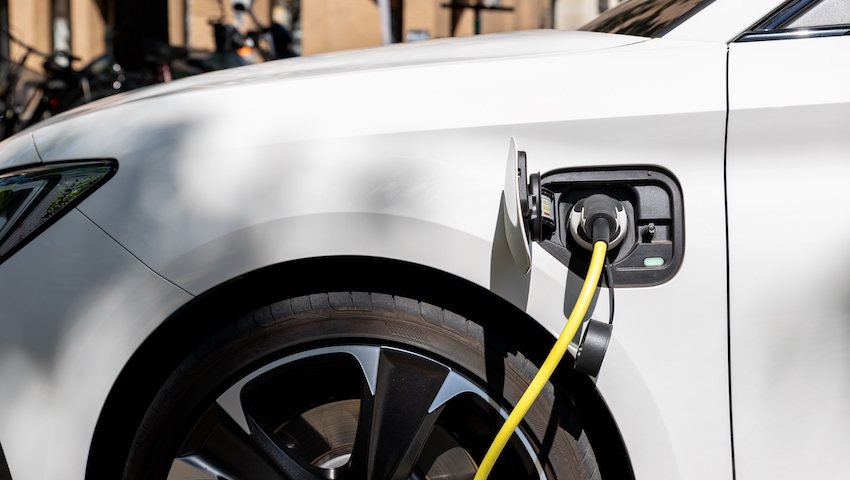Which? calls for improvements to electric vehicle charging networks
Which? is calling for urgent improvements to the UK’s charging infrastructure to allow drivers to switch to electric vehicles with confidence.
The consumer body believes the UK government needs to move quickly to address issues with the UK’s charging infrastructure, including poor reliability and confusing payment options, as well as doing more to ensure charge points are available where drivers need them, in order for more people to make the switch to electric vehicles.
The survey of almost 1,500 Which? members who own an EV or plug-in hybrid vehicle (PHEV) highlights current difficulties with finding a charger that works. Half (48%) of EV drivers who use the public charging infrastructure find it a challenge simply to find a charging point in good working condition. Meanwhile, four in ten (40%) reported that they have experienced a non-working charger and four in ten (43%) have faced ‘technical issues’ with charging points.
Which?’s research also exposed difficulties around payment at public charge points – with six in ten (61%) having experienced an issue making payments.
Respondents also reported that there are not enough options when paying for electric charging. One in six EV drivers (18%) who no longer use public chargers were put off by the lack of convenient payment options, while eight in ten (84%) who currently use public chargers want to be able to pay via contactless bank card to avoid the hassle of paying via multiple apps. Currently, only a limited number of charge points offer payment by bank card.
The survey also revealed that around half of those using the public charging networks believe they do not have adequate access to charge points close to their homes (48%) and nearly half (45%) felt this was the case while on journeys.
Which? asked EV drivers to estimate how far the nearest public on-street charging point was from their homes and nearly half (45%) estimated that the nearest was more than a 20-minute walk away. This is an issue for drivers that do not have off street parking and are unable to charge at home, but are faced with a long walk to and from their car while charging takes place.
Meanwhile, one in five (20%) EV owners who no longer use the public charging infrastructure were put off by a lack of adequate charge points, while one in five (21%) drivers who have never used the public networks have been put off for the same reason.
Similarly, in a separate survey of 2,000 car owners, when asked why they might not consider an EV, four in ten (39%) car owners said that the top reason was there not being enough charging points, while 36 per cent cited range anxiety – concern over how far the car will travel on a single charge. Only the upfront cost of an EV (44%) was a greater concern. Meanwhile, three in 10 (29%) car owners said they would not consider an EV because it is ‘too much of a hassle’.
Despite the issues raised, Which? found that more than a third (34%) who plan on buying a new car in the next two years would consider getting an EV.
Which? believes many of the proposals the government has made to improve the consumer experience at public charge points are positive and wants them to be implemented swiftly.
The consumer champion is also calling on the government to extend the planned reliability standard for rapid charge points to cover all public charge points, to drive improvements across the entire infrastructure. This ‘reliability standard’ means that charge point networks have to be in working order for an average of 99 per cent of the time.
Which? is also urging the government to ensure its proposals for ‘payment roaming’ will mean consumers no longer need to navigate multiple apps and cards to pay for charging. Which? believes drivers should be able to pay via bank card wherever possible, or via a single app or payment card that is accepted by all networks. The government should build on the good examples that are already out there.
The UK government’s recent announcement of pilot schemes that will see more charge points being installed across local areas is a positive step, and Which? is calling for the UK and devolved governments, charge point operators and local authorities to work together to ensure that on-street public charging is readily available for those who need it.
Sue Davies, Which? Head of Consumer Protection Policy, said: “Our research shows that the public EV charging infrastructure is falling short as many drivers struggle to find reliable charging points in good working order, have to navigate confusing payment systems, or are unable to rely on adequate charging points close to their homes or to get them through a long journey.
“The government must move quickly to implement its plans to improve the consumer experience of using the public charging networks by extending reliability standards across the full network and ensuring proposals for payment roaming make paying to charge much simpler.
“Charging must be easy, reliable and seamless to support people making the move to an electric car.”
